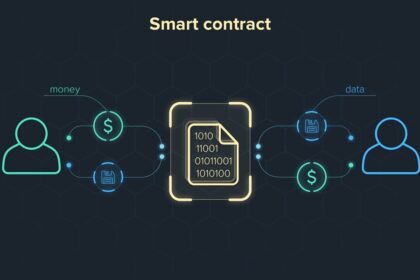The advent of 5G technology marks a significant milestone in the evolution of wireless communication. As the fifth generation of mobile networks, 5G offers unprecedented speed, connectivity, and reliability. This article delves into the impact of 5G on global digital transformation, exploring its influence on various sectors, technological advancements, and future prospects.
Understanding 5G Technology
5G technology represents the next step in the evolution of mobile networks. Unlike its predecessors, 5G promises to deliver faster data speeds, lower latency, and more reliable connections. This improvement is achieved through several key technologies:
Enhanced Mobile Broadband (eMBB):
This allows for faster data speeds and improved capacity, enabling seamless streaming and real-time applications.
Ultra-Reliable Low-Latency Communication (URLLC):
This ensures minimal delay, crucial for applications requiring instant feedback, such as autonomous driving and remote surgery.
Massive Machine-Type Communications (mMTC):
This supports a vast number of connected devices, driving the Internet of Things (IoT) forward.
The Impact of 5G on Global Digital Transformation
5G technology is set to revolutionize various industries by enhancing connectivity and enabling new applications. Here’s a closer look at its impact across different sectors:
Healthcare
In healthcare, 5G can transform patient care and medical practices. With its low latency and high reliability, 5G enables remote surgery and telemedicine. Doctors can perform operations from miles away using robotic instruments. Moreover, real-time monitoring of patients’ health becomes feasible, allowing for timely interventions and improved outcomes.
Manufacturing
The manufacturing sector stands to benefit immensely from 5G technology. Enhanced connectivity allows for the seamless integration of IoT devices, leading to the creation of smart factories. These factories can optimize production processes, reduce downtime, and enhance efficiency. Predictive maintenance, enabled by real-time data analysis, can further minimize operational disruptions.
Transportation
The transportation industry is another domain where 5G will make a significant impact. Autonomous vehicles rely on ultra-low latency and real-time data processing, both of which 5G can provide. This technology enables vehicles to communicate with each other and infrastructure, improving traffic management and reducing accidents. Additionally, 5G supports advanced navigation systems and real-time traffic updates, enhancing the overall travel experience.
Entertainment and Media
5G technology will revolutionize the entertainment and media industry by enabling faster content delivery and improved user experiences. With higher data speeds, consumers can stream high-definition videos without buffering. Augmented reality (AR) and virtual reality (VR) applications will become more immersive and accessible, opening up new avenues for entertainment and advertising.
Smart Cities
The concept of smart cities relies heavily on advanced connectivity, which 5G provides. Smart cities use IoT devices to monitor and manage resources efficiently. From traffic management to waste disposal, 5G enables real-time data collection and analysis, leading to better decision-making and improved urban living conditions.
Agriculture
In agriculture, 5G can drive significant advancements in precision farming. IoT sensors connected via 5G can monitor soil conditions, crop health, and weather patterns in real-time. This data allows farmers to make informed decisions, optimize resource usage, and increase crop yields. Furthermore, autonomous farming equipment can operate more efficiently with reliable 5G connectivity.
Education
The education sector is poised to benefit from 5G technology through enhanced e-learning experiences. With faster internet speeds and lower latency, virtual classrooms can become more interactive and engaging. Students can participate in real-time discussions, access high-quality educational content, and collaborate with peers globally. Additionally, VR and AR applications can provide immersive learning experiences, making education more accessible and effective.
Finance
The finance industry can leverage 5G to enhance security and streamline operations. Faster data transmission and processing enable real-time transactions and improved customer experiences. Financial institutions can also utilize 5G for advanced data analytics, fraud detection, and risk management. Furthermore, the integration of blockchain technology with 5G can enhance the security and transparency of financial transactions.
Technological Advancements Driven by 5G
The deployment of 5G technology is driving several technological advancements across various fields:
Internet of Things (IoT)
5G is a key enabler of the IoT, connecting a vast number of devices and facilitating seamless communication. With 5G, IoT devices can operate with minimal latency and higher reliability, leading to the creation of smart homes, smart cities, and smart industries. This connectivity allows for better automation, improved efficiency, and enhanced user experiences.
Artificial Intelligence (AI)
AI applications benefit greatly from the high-speed data transmission and processing capabilities of 5G. With real-time data availability, AI algorithms can perform complex analyses and make instant decisions. This synergy between 5G and AI can drive advancements in autonomous vehicles, healthcare diagnostics, and predictive analytics.
Augmented Reality (AR) and Virtual Reality (VR)
The immersive experiences offered by AR and VR require high data speeds and low latency, both of which 5G provides. With 5G, AR and VR applications can deliver more realistic and interactive experiences. This technology is set to revolutionize gaming, entertainment, education, and even remote collaboration.
Cloud Computing
5G enhances cloud computing by providing faster and more reliable connectivity. This allows for seamless access to cloud-based applications and services, enabling businesses to operate more efficiently. The combination of 5G and edge computing further reduces latency, making real-time data processing and analysis possible.
Future Prospects of 5G Technology
The future of 5G technology holds immense potential. As 5G networks continue to expand globally, several trends and developments are expected to shape the digital landscape:
Expansion of 5G Networks
The deployment of 5G networks is still in its early stages, with many countries investing heavily in infrastructure. As 5G coverage expands, more regions and industries will have access to its benefits. This widespread adoption will drive further innovations and applications, accelerating global digital transformation.
Integration with Emerging Technologies
5G technology will integrate with other emerging technologies to create new possibilities. The combination of 5G with AI, IoT, blockchain, and quantum computing will lead to unprecedented advancements. These technologies will work together to solve complex problems, improve efficiency, and enhance user experiences.
Enhanced Security and Privacy
As 5G networks become more prevalent, ensuring security and privacy will be paramount. Advanced encryption techniques and robust security protocols will be developed to protect sensitive data. Additionally, regulatory frameworks will evolve to address the unique challenges posed by 5G technology.
Economic Growth and Job Creation
The deployment and adoption of 5G technology will stimulate economic growth and create new job opportunities. Industries leveraging 5G will require skilled professionals to develop, implement, and maintain advanced applications. Moreover, the increased efficiency and productivity enabled by 5G will contribute to overall economic development.
Environmental Impact
While 5G technology offers numerous benefits, its environmental impact must also be considered. The increased energy consumption and electronic waste associated with 5G infrastructure pose challenges. However, advancements in energy-efficient technologies and sustainable practices can mitigate these concerns, ensuring a balanced approach to digital transformation.
Conclusion
5G technology is a game-changer in the realm of wireless communication, driving global digital transformation across various sectors. Its high-speed data transmission, low latency, and reliable connectivity enable innovative applications in healthcare, manufacturing, transportation, entertainment, and more. As 5G networks continue to expand and integrate with emerging technologies, the future holds immense potential for further advancements and economic growth. Embracing 5G technology will pave the way for a more connected, efficient, and sustainable world.








